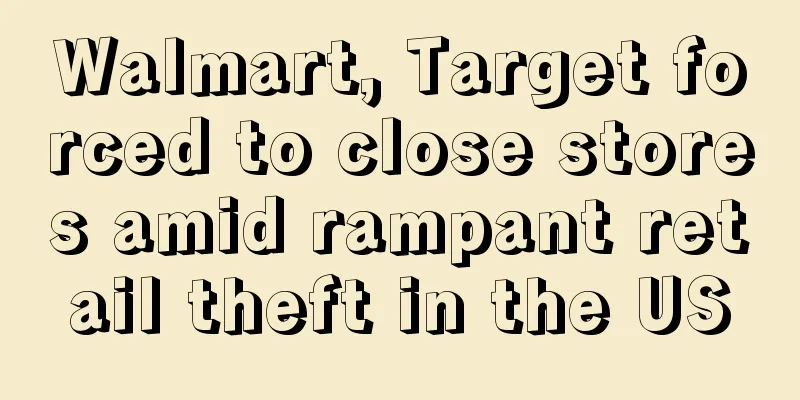Fake products cheated by Amazon buyers? Amazon buyers' complaints reveal unknown secrets!

|
Recently, the words "suspected of intellectual property infringement", "intellectual property complaints" or "complaints from buyers about the authenticity of goods" have frequently appeared on the Internet. The wave of infringement has swept in and once again become a hot topic. Moreover, on Amazon, a world-renowned e-commerce platform, intellectual property infringement is a serious issue that needs to be taken seriously. It is crucial for sellers to understand Amazon's penalties for intellectual property infringement , which not only affects the normal operation of the current business, but also affects long-term business development. We can see that the content that affects Amazon store performance is generally these, including the first three about infringement: suspected infringement of intellectual property rights, intellectual property complaints, and buyer complaints about product authenticity. In the previous article, we talked about the content of intellectual property complaints, so today we will talk about the content of buyer complaints about product authenticity. 0 1 What is a product authenticity buyer complaint? The complainants of buyer complaints about product authenticity are usually buyers. After receiving the product, some buyers find that it is different from the description in the picture or the packaging is damaged, and they will complain that your product may be a fake, resulting in an authenticity complaint. For Amazon, authenticity violations are more serious than copyright infringement. Copyright infringement may be unaware, but selling counterfeit goods is a knowing offense. Therefore, Amazon will suspend your store's sales privileges and freeze your funds and inventory. 0 2 Trigger conditions for seller complaints about product authenticity It is understood that there are usually two situations that trigger account authenticity review: 1. System scan number Typically, Amazon conducts large-scale account checks and reviews during its peak sales periods, especially during important promotions such as Black Friday. This is because Amazon needs to ensure that all sellers on the platform abide by the rules and maintain order on the platform. The Amazon platform will determine whether the products sold by your account meet the platform's quality standards and policy requirements. If any non-compliant products are found, your account may be considered to have potential risks or security risks, and may even be used for fraud or illegal activities. Such behavior will not only have a negative impact on consumers, but may also damage the reputation of other sellers and Amazon itself and the overall stability of the platform. 2. Someone complained Competitors or brands are usually responsible for auditing brand product lines by the brand or its legal team. Brands regularly check their products to ensure that the products sold on the market meet their standards. If complaints are received from buyers, it is often because certain products are too similar in appearance or design to other well-known brands, especially those suspected of being counterfeit products. In addition, the detail pages of these products may contain misleading descriptions, causing buyers to mistakenly believe that they are purchasing counterfeits, which in turn leads to complaints. Another possible reason for triggering video verification is that some sellers reported that although many old stores they operated had passed the review and were included in the whitelist, they still received similar email notifications. Sellers believe that this may be because although these products are on the whitelist, the brand registration information has not been completed, causing doubts in the system. To complicate the situation, some sellers said that their new store, which opened in March of this year, has a brand that was originally applied for by another company and operated in a whitelist form for several months in the early days of the store. However, after the brand authorization was transferred to the new store, all products suddenly could not be searched and edited, and the store was even required to undergo video verification, which made the sellers very confused and uneasy. Regarding this situation, some sellers speculated that the problem might be that these products had not completed brand registration, or that brand authorization was granted to multiple stores at the same time, which might have attracted Amazon's attention. Amazon might think that there were problems with inventory management for these products, and thus initiated a strict review process. This situation not only increased the complexity of operations for sellers, but also affected the normal operation of the store. If sellers fail to resolve the issue in a timely manner, revoking the right to create Amazon logistics shipments and withholding funds may have a serious impact on their business. Especially with the peak season approaching in the second half of the year, sellers who miss this opportunity may not only suffer business losses, but also face the risk of irrecoverable funds. Therefore, sellers must actively file complaints and ensure that these issues are resolved as soon as possible to avoid affecting their business interests. 0 3 Solutions for authenticity verification According to Amazon's requirements, the conditions for appeal are: 1. Provide the required verification information Including but not limited to business license, ID card, invoices and receipts, supplier information (supplier's name, phone number, address and website), quantity of goods, import or export documents (bill of lading, commercial invoice and packing list), brand authorization letter authorizing you to use trademarks, designs, patents or copyrights. 2. Participate in a video interview to verify the authenticity of the account and inventory Amazon requires that the participants must be store owners and operators, as they play an indispensable and core role in store operations. In addition, partners who are closely related to business operations are also eligible to participate, as additional stakeholders can provide valuable business perspectives and support. In fact, the inventory authenticity video audit combines the requirements of "product authenticity audit" and "supply chain video verification" and is an upgraded version of the two. Although it is called "virtual identity verification" , it is not similar to virtual video authentication, but focuses on confirming the true identity of the account. The main goal of the audit is to verify the authenticity and legality of the inventory to prevent improper "inventory disguise". Regarding the results of the video interview, Amazon promises to provide review feedback within 5 working days. Many sellers encountered various challenges in the video interviews. Some of these challenges were caused by the legal person’s unfamiliarity with the operation-related knowledge, which made it impossible to answer questions. Some legal persons of old stores could no longer be contacted. One seller said: “Because the legal person could not answer the questions, our store was cleared and banned.” In response to these situations, experienced sellers recommend that the appeal materials must be detailed and truthful. Before the video interview, the legal person should be fully trained to ensure that he can skillfully answer the questions in the interview, or an experienced operator should be invited to participate in the interview to provide support when the legal person is unable to answer. However, some sellers who participated in the video interview pointed out that there were relatively few questions when the legal person participated alone, but when the operation staff participated, the number and difficulty of questions would increase. Therefore, sellers need to be fully prepared, because Amazon's video review usually has only one chance, and failure may be regarded as fraud, and subsequent withdrawals will also face difficulties. Dealing with buyer complaints about the authenticity of Amazon products requires sellers to have meticulous operations and adequate preparation. Whether it is pre-emptive prevention or post-complaint, sellers must follow Amazon's policies and regulations. At the same time, sellers must remain highly vigilant and adopt effective strategies to safeguard their own business interests. Creating differentiated product sales and a unique corporate culture are the keys to gaining a firm foothold in the fierce market competition. |
Recommend
CPC advertising: a tutorial on how to create a super hit
Everyone who does business on Amazon knows that w...
What is Adsmarch? Adsmarch Review
Adsmarch was founded in 2017 and is a startup comp...
What is Harry's Razors Company? Harry's Razors Company Review
Harry's Razors Company, based in New York, was...
Many sellers ignore this key information during the peak season!
The recently popular series of short videos "...
What is Blue Ocean Yiguan Network? Blue Ocean Yiguan Network Review
Lanhai Yiguan.com is a professional cross-border e...
Huge loss of 460 million! The performance of the heavily indebted Youkeshu is declining again
It is learned that on April 26, Shenzhen's big...
Amazon recalls over 30,000 fans due to risk of cutting! 6 injuries reported
It is learned that on March 7, the U.S. Consumer P...
What is the Early Incubation Program? Early Incubation Program Review
Starting from the second year after the store is o...
What is Fetcher? Fetcher Review
Fetcher is a seller profit calculation software th...
What is an Amazon VC account? Amazon VC account review
VC (Amazon Vendor Central), sellers sell products ...
U.S. import demand is falling off a cliff, and February may see the biggest drop in three years!
It is learned that according to the latest monthly...
What is a Bank Holiday? Bank Holiday Review
The UK's national holidays are different from ...
Zhaodanmao Training Academy-How do Amazon sellers create one-time discount codes in the background?
In Amazon Seller Center, sellers can create one-ti...
Tips to dominate the first page of Amazon search results
In this period...
Best Buy's Q3 revenue fell 7.8%, and it lowered its full-year performance guidance
It is learned that recently, Best Buy, the US cons...









